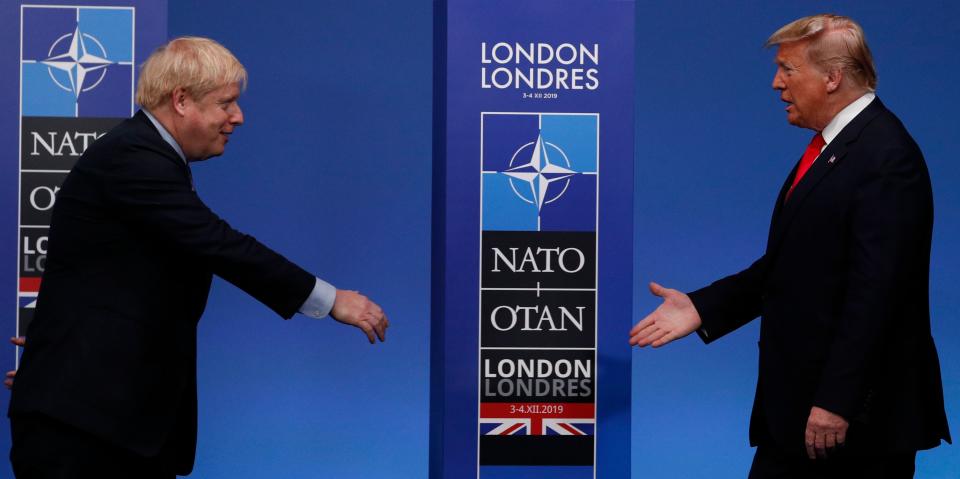Why a US-UK post-Brexit trade deal will not happen soon

US president Donald Trump used his celebratory tweet for Boris Johnson’s victory in the general election to reignite excitement over a US-UK trade deal post-Brexit.
The Conservatives won at least 363 seats — only two constituencies are left to report the results, later today. This is way above the 326 seats needed in parliament to form a government. With this comfortable majority Johnson can push through a Brexit deal and start reshaping trade and relations in the way he wants, without worrying too much about getting support from external politicians.
But both Johnson’s and Trump’s enthusiasm for a trade deal can’t bypass the reality of what it takes to seal a bilateral trade deal. In reality, the mechanisms for sealing a trade deal are incredibly complex and typically take years.
Firstly, if a Brexit deal is sealed, there will be a transition period for the UK leaving the EU. During this time, the UK government will still need to adhere to EU rules as it looks to set out new frameworks and legislation that will govern everything from trade to immigration. That means that officially, the UK and US can’t implement a new trade deal during this time — which is set to be a minimum of two years.
Secondly, even if miraculously Johnson and Trump agreed to some high-level terms, or even if Johnson enacted a hard Brexit — therefore relinquishing any transition period — carving a trade deal is a complex operation.
Lets take one of the most successful trade deals into account — the EU-Canada free trade deal (CETA). It took seven years to put together. Jason Langrish, the man who helped “give birth” to that deal warned previously that it will be extremely difficult for the UK to negotiate any bilateral deal within a two-year negotiation period.
“The next generation of bilateral agreements, of which CETA is the template, is complex,” said Langrish. “They reflect the realities of modern commerce and go beyond trade, touching upon behind-the-border issues such as standards, regulation and opening government contracts to competitive bidding. This complexity means that the deals take years to negotiate and conclude. In our amped up media environment, there are special interests making noise at each step in the process, ensuring that trade and investment deals are a marathon, not a sprint.”
The extra unique complexity of dealing with Britain
The complexity is even more acute when it comes to trying to pair up interests from the US and UK, since Britain has a number of industries that are intertwined with the government and taxpayer.
Some, namely Britain’s National Health Service (NHS), are fully funded by citizens.
The NHS is a public institution, funded by the taxpayer, allowing anyone on British soil to obtain free healthcare. A trade deal with the US, which has practically the polar opposite approach to healthcare, also risks breaking up the NHS — something that would mark a seismic change to Brits’ way of life and would be deeply unpopular for any party to propose or support.
While Trump and Johnson have both said that the NHS is not going to be “sold off” in a trade deal, there are key ways in which the NHS can be involved in an agreement.
The UK health service is already being stealth privatised as private companies are being given a greater share of business and control within the system, and monopoly over drugs.
A report by the NHS Confederation warned that a post-Brexit trade deal with Trump could lead to patients paying billions more for medicine if the health service is denied the chance to use cheaper alternatives to more expensive branded drugs.
Meanwhile new research has shown that under a mainly Conservative government since 2015, £15bn ($19.4bn) of NHS contracts have been handed to private companies — double of the total yearly value since the Tories took office. This is out of £24bn of outsourced contracts awarded since 2015 — equivalent to 61%.
All this wrapped into the default complexities of sealing a trade deal make it even more unlikely that the US and UK will be able to agree to high-level terms, create a deal, and get it approved any time soon.

 Yahoo Finance
Yahoo Finance 
